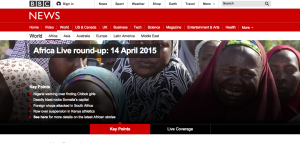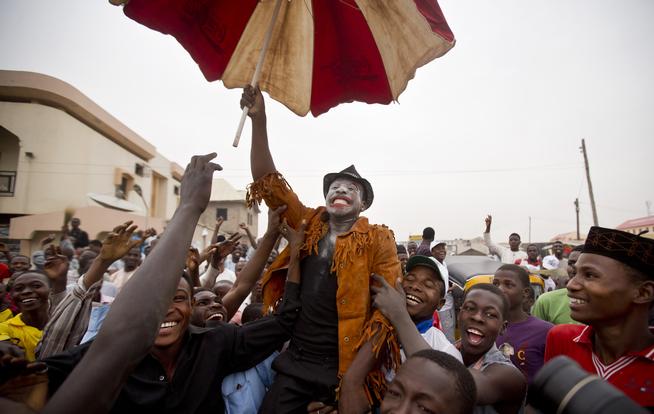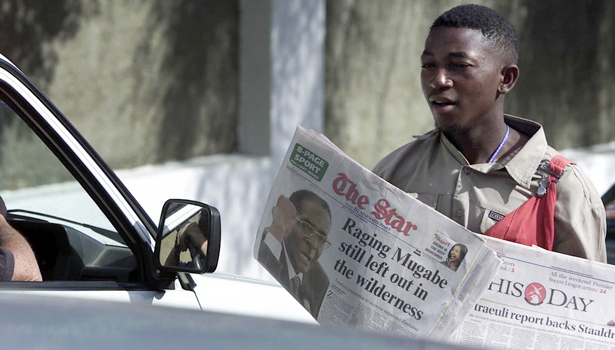BBC Expansion Signals African Media Shift

This has meant a changing resource distribution, often leaving Africa with a shortage of reporters and coverage in comparison to the Middle East and Europe.
But there seems to be an awakening within Western media towards the news value of Africa as more than just a continent of civil strife and Ebola. The latest indication of the change comes with the announcement that British Broadcasting Corporation(BBC) News is now running a Africa Live page, constantly streaming and updating news from throughout Africa, Monday through Friday, on topics ranging from politics to health and science.
BBC is one of several organizations that has stepped up their own approach to the continent lately, also including Quartz’s announcement that they will develop Quartz Africa by sending up to six reporters into various countries. Meanwhile, Buzzfeed has begun to send their own correspondents into Africa, while the Guardian continues to add inter-continent outlets to their network of streaming news on their own Africa Network page.
The expansions signal a growing shift from coverage that has historically focused on the superficial and negative. The narrative lines of the “hopeless” continent are trodden through a lack of other pathways of reporting, from outlets that drop or “parachute” their journalists in to cover a big story and leave again, without most media investing for “staying power” in Africa.
Now, that is changing.
News media are awakening to the market importance of Africa’s quickly growing digital and economic strength. Media expansion in Africa coverage is not just a socially responsible decision, holding relevance is becoming a market imperative for global news organizations, one that they are now seeking to capitalize on.
Quartz reports that they already receive 100,000 unique visitors from Africa monthly, an indicator of the deepening potential for readers and consumers. It stands only to grow.
A 2014 report found South Africa as the fastest-growing digital economy, with Kenya and Nigeria also landing within the top 50. By 2025, it says, internet penetration in Africa will reach 50 percent. Meanwhile, The Economist projects Africa to hold seven of the world’s ten fastest-growing economies through 2015.
There is especially fertile ground for news media in mobile technology in Africa, which already hosts more mobile subscribers than both the United States and the U.K. One Voice of America app developer even called the continent “mobile-only.”
There is also a huge youth population in Africa, projected to hold half of the world’s youth population by 2040, a crucial demographic where media organizations have invested much time and research in creating methods of engagement. These developments make Africa a place of still largely untapped potential in market share and influence for media organizations, leaving the previous minimal investment as an increasingly unsustainable path.
Media outlets which do not invest now are likely to be left behind. It is no longer a question of possibility, but a necessity.






Interesting article. Nice to see some positive side to the rapidly evolving media!